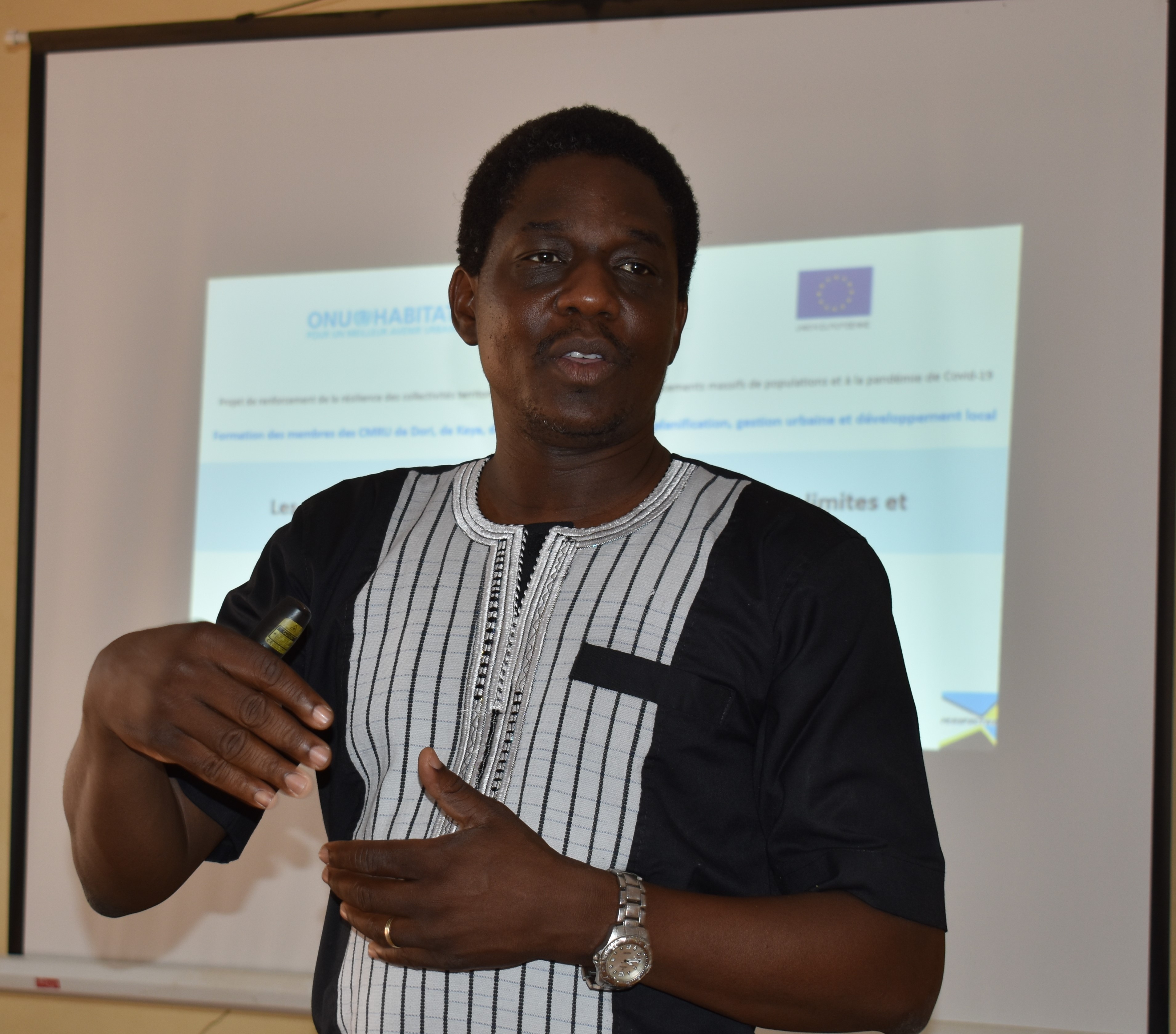Ouagadougou 20 May 2021-- As part of the project "Strengthening the resilience of local authorities in Burkina Faso in the face of massive population displacements and the Covid-19 pandemic", funded by the European Union, UN-Habitat enhanced capacities of local actors in planning, urban management and local development in the four project cities: Kaya, Dori, Kongoussi and Tougouri. The training sessions, one per city, were organized in close collaboration with the Ministry of Urbanism, Housing and the City, the respective city councils and the project implementation partner “Agence Perspectives”.
Strengthening the capacities of national and local actors is a crucial step for better resilience to shocks such as the rapid growth of the urban population. The humanitarian crisis that has raged in Burkina Faso for several years has led to the displacement of more than 1.2 million people, most of them seeking refuge in cities.
Capacity building is one of the major components of the project aiming to increase the resilience of local authorities, alongside the construction of adequate housing and community infrastructure. To strengthen the local implementation, Municipal Urban Resilience Cells (CMRU) have been set up in each city. These Cells, which include representatives of local authorities, but also host and IDP populations, are key actors for consultations, reflections, orientations and decision-making for urban planning, development and management, and cooperate with local authorities to adequately respond to the massive influx of internally displaced populations (IDPs). As decision-making processes in the project are participatory and inclusive, the members of these cells were now trained in urban planning and management, in order to be efficient in their role.
The workshops consisted of five modules, accompanied by practical exercises and participatory planning activities as follows:
• Urban and local planning tools in Burkina Faso;
• Participatory mapping exercise: introduction of an urban management tool for increasing the spatial dimension of urban planning;
• Integrated concepts for urban and territorial planning: inspiration by international experiences;
• Co-design exercise: prioritization of needs and establishing consensus for urban planning and management;
• Increasing understanding about Urban Resilience: introduction of the CityRAP tool (a UN-HABITAT tool for participatory planning).
Agency Perspectives, which conventionalized and ducted most training sessions, was satisfactied with the high level of participation of participants and the discussions: ''We conducted group work during which the participants made proposals for plans and developments on plots of 150m². It was interesting to see the interaction and the sometimes heated discussions. It is precisely this participatory process and this integrated planning across all sectors (water, energy, housing, public spaces, etc.) and with different stakeholders (local authorities, national authorities, representatives of indigenous populations and IDP communities) that we needed to advance with the rest of the implementation of the project ''.
One of the group work consisted in the prioritization of infrastructures to be built within the project neighborhood taking the needs of the beneficiary populations from both host and IDP communities into consideration. These included, for example, primary schools, general education colleges, green spaces, household waste processing centers etc;
One of the participants, Ms. Sow Maiga Roukiatou greatly appreciated this participatory and inclusive approach: “A home is a place for women. This project is very useful for all women and this training taught me a lot. I am very proud of what I learned today.” Ms Sow currently hosts 19 internally displaced people, from 4 households in her home.
The project, with its “integrated territorial approach” has just completed the phase of the choice of construction sites for 500 housing units for the most vulnerable populations (IDPs and host populations) in the four municipalities, in consultation with the Municipal Cells, city councils, the Ministry of Town Planning, Housing and the City and landowners.
The 18-months project "Strengthening the resilience of local authorities in Burkina Faso in the face of massive population displacement and the Covid-19 pandemic" is funded by the European Union. The overall objective of the project is to increase the resilience of local authorities in Burkina Faso and their most vulnerable communities in the face of crises caused by mass displacement of populations and the COVID-19 pandemic and to strengthen social cohesion.
